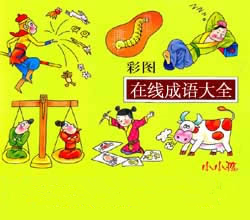英文读后感-Marry Money or Marry the One You Love
孙 屹 上海中学高二(5)班 阅读书目:傲慢与偏见 Pride and Prejudice (书虫· 牛津英汉双语读物)
Many people simply regard Pride and Prejudice as a love story, but in my opinion, this book is an illustration of the society at that time. She perfectly reflected the relation between money and marriage at her time and gave the people in her works vivid characters.
The characters have their own personalities. Mrs. Bennet is a woman who makes great efforts to marry off her daughters. Mr. Bingley is a friendly young man, but his friend, Mr. Darcy, is a very proud man who seems to always feel superior. Even the five daughters in Bennet family are very different. Jane is simple, innocent and never speaks evil of others. Elizabeth is a clever girl who always has her own opinion. Mary likes reading classic books. (Actually she is a pedant.) Kitty doesn’t have her own opinion but likes to follow her sister, Lydia. Lydia is a girl who follows exotic things, handsome man, and is somehow a little profligate. When I read the book, I can always find the same personalities in the society now. That is why I think this book is indeed the representative of the society in Britain in the 18th century.
The family of gentleman in the countryside is Jane Austen’s favourite topic. But this little topic can reflect big problems. It concludes the stratum situation and economic relationships in Britain in her century. You can find these from the very beginning of this book.
The first sentence in this book is impressive. It reads: “It is a truth well known to all the world that an unmarried man in possession of a large fortune must be in need of a wife”. The undertone is very clear: the foundation of the marriage at that time is not emotion but possession.
People always think that Austen was an expert at telling love stories. In fact, the marriage in her book is not the result of love, but the result of economic needs. After reading this book, I know the truth is that a poor woman must be in need of a husband, a wealthy man.
I couldn’t forget how eager Mrs. Bennet wants to marry off her daughters. If you want to know why she is so crazy about these things, I must mention the situation in Britain at that time. Only the eldest son had the privilege of inheriting his father’s possessions. Younger sons and daughters who are used to luxurious lives have no choice but marry a man or woman in possession of a large fortune to continue their comfortable lives. Thus, we can see that getting married is a way to become wealthier, particularly for women without many possessions. Jane Austen told us that money and possession determined everything, including marriage and love in her century.
In “Pride and Prejudice”, the sister of Mr. Bingley strongly opposed his plan of marrying Jane because the Bennets don’t have many possessions and their social positions are much lower than them. From this, we can see there are a lot of obstacles for a not very rich woman to marry a wealthy husband. The society, the relatives would not allow them to get married.
In modern society, although the marriages of economic needs have decreased rapidly, the concept of “money determines everything” is still rooted in some people’s mind. A lot of parents try hard to interfere their children’s marriages. Education background, possessions, jobs remains the main reason that may influence one’s marriage. Marry for money is still a big problem in our society. We can’t help thinking: can money determine everything?
Austen left this problem for us to think. The genius of Jane Austen lies in this perfect simplicity, the simplicity that reflects big problems. Although Austen was only 21 when she wrote “Pride and Prejudice”, her sharp observation of social lives makes the style of this book surprisingly mature and lively. The plots in her works are always very natural. The development of the plot is as inevitable as a problem in mathematics. I think the depth of Pride and Prejudice is the reason that makes this book prominent and classic. Today, her book still can be the guide telling us the economic relationships both at her time and in modern time.
相关作文: 新的学期开始了、找春天、我和全家看电视、难忘的夏令营作文200字、生活中的传统文化、春天真美丽、有趣的动物朋友、观察小鱼、自己种植物、为爸爸做生日蛋糕热门作文成语素材
- 匪夷匪惠 夷:殷末周初的伯夷;惠:春秋时鲁国的柳下惠。既不是伯夷,又不是柳下惠;不具备这两位贤人的品德。形容才德不高而又驾驭的人。
- 安分知足 安于本分,对自己所得到的待遇知道满足。
- 白华之怨 指女子失宠之哀怨。
- 诽誉在俗 诽:指诽谤;誉:赞扬;俗:风气、习惯。诽谤或赞扬在于当时的风习。后来引申指风气、习惯的作用非常大。
- 斑驳陆离 斑驳:色彩杂乱;陆离:参差不一。形容色彩纷杂。
- 半壁江山 半壁:半边;江山:比喻国家疆土。指在敌人入侵后残存或丧失的部分国土。
- 挨肩擦背 形容人多拥挤。
- 肥马轻裘 裘:皮衣。骑肥壮的马,穿轻暖的皮衣。形容阔绰。
- 补天柱地 修补天,支撑地。比喻伟大的功勋。
- 不费吹灰之力 形容事情做起来非常容易,不花一点力气。
- 飞蛾投火 象蛾子扑火一样。比喻自找死路、自取灭亡。
- 不近人情 不合乎人的常情。也指性情或言行怪僻。
- 不欺暗室 欺:欺骗自己;暗室:人家看不见的地方。在没有人看见的地方,也不做见不得人的事。
- 不期而然 期:希望;然:如此。不希望这样,而竟然这样。表示出乎意外。
- 方领矩步 方领:直的衣领;矩步:行步合乎规矩。指古代儒者的服饰和容态。
